Search
Search Results

Definition
Fates
The Fates (also known as the Moirai in Greek mythology) are three sister goddesses responsible for assigning destinies to mortals at their birth, a human's lifespan, and the timing of their death. The golden thread they spin represents each...
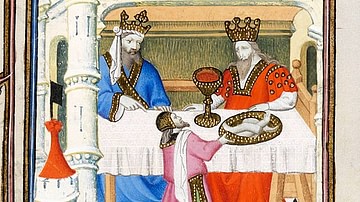
Definition
Atreus
Atreus was the mythical Greek king of Mycenae. He is perhaps best known for being the father of Agamemnon and Menelaus, two heroes of the Trojan War, as well as for the terrible curse placed upon his family. This was a hereditary curse, plaguing...
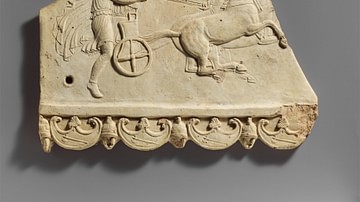
Definition
Pelops
Pelops was a Greek hero and king of Pisa in Greek mythology. As the son of Tantalus, he was a member of the cursed House of Atreus, and was cruelly sacrificed by his father in a twisted way to test the gods – an act that backfired and led...

Definition
Pan Flute
The pan flute or panpipes (syrinx) was a musical wind instrument first used by the ancient Greeks. Most commonly played by shepherds, the earliest use was in the Cycladic islands in the third millennium BCE, and representations of the instrument...
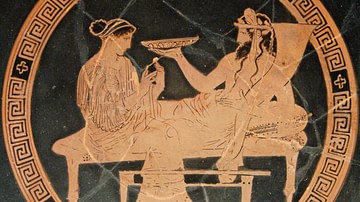
Definition
Persephone
Persephone (aka Kore) was the Greek goddess of agriculture and vegetation, especially grain, and the wife of Hades, the ruler of the Underworld. Persephone was an important element of the Eleusinian Mysteries and the Thesmophoria festival...
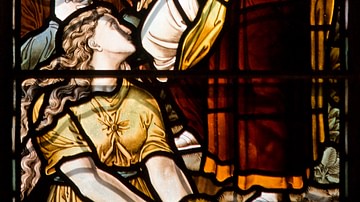
Definition
Nehushtan
According to the Bible, Nehushtan was a metal serpent mounted on a staff that Moses had made, by God's command, to cure the Israelites of snake bites while wandering in the desert. The symbol of snakes on a staff or pole is a motif that is...
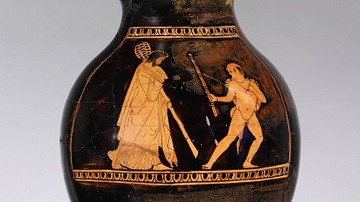
Definition
The Anthesteria
The Anthesteria celebrated two seemingly disparate things: wine and the dead. Both Dionysos and Hermes Chthonios (Hermes of the Underworld) were celebrated as part of this festival. In many ways, the Anthesteria is similar to our modern Halloween...
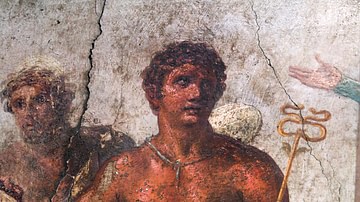
Image
Painting of Mercury, House of the Vettii
Part of a mosaic depicting the god Mercury (Hermes). House of the Vettii, Pompeii. 62-79 CE.

Definition
Alcibiades
Alcibiades (or Alkibiades) was a gifted and flamboyant Athenian statesman and general whose shifting of sides during the Peloponnesian War in the 5th century BCE earned him a reputation for cunning and treachery. Good-looking and rich, he...

Definition
Sisyphus
Sisyphus (or Sisyphos) is a figure from Greek mythology. He was king of Corinth and became infamous for his general trickery when he twice cheated death. Sisyphus ultimately got his comeuppance when Zeus dealt him the eternal punishment of...